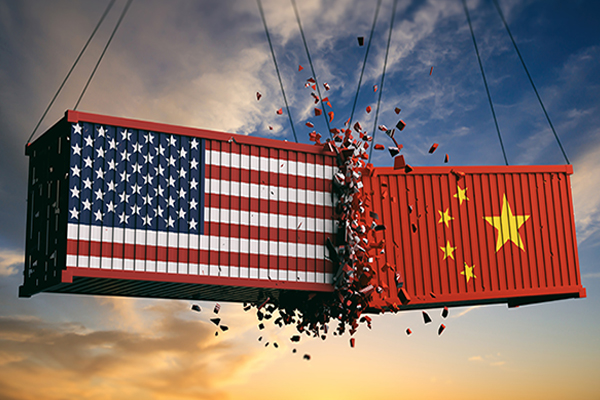
Over the past 12 hours, significant shifts have occurred in international trade involving the United States, Canada, Mexico, and China. Here’s a quick rundown of the latest news.
United States, Canada, and Mexico Reach Temporary Agreement
President Donald Trump has agreed to postpone the imposition of a proposed 25% tariff on imports from Canada and Mexico for 30 days. This decision follows negotiations with Canadian Prime Minister Justin Trudeau and Mexican President Claudia Sheinbaum. As part of the agreement, Mexico will deploy 10,000 National Guard troops to its borders to combat drug trafficking and illegal immigration into the U.S. Similarly, Canada will increase its border security measures to prevent the flow of fentanyl into the United States. This pause aims to provide all parties with additional time to negotiate a more comprehensive trade deal and avert an immediate conflict.
China Retaliates Against U.S. Tariffs
In response to President Trump’s imposition of a 10% tariff on all Chinese imports, China has announced retaliatory measures targeting specific U.S. goods. Starting next Monday, China will implement a 15% tariff on U.S. coal and liquefied natural gas (LNG), and a 10% tariff on U.S. crude oil, large-displacement vehicles, and agricultural machinery. Additionally, China has initiated an antitrust investigation into Alphabet Inc.’s Google, signaling a potential escalation in trade tensions.
Market Reactions and Economic Implications
Global markets have responded negatively to these developments. Major indices, including the S&P 500, Nasdaq, and Dow Jones, have experienced declines of up to 1.9%. Analysts warn that the new tariffs could lead to increased economic disruption and inflation in the U.S., contrary to investor expectations that Trump’s threats were mere negotiating tactics. The tariffs may also delay potential rate cuts from the Federal Reserve, adding further volatility to the markets.
Industry Impact: E-commerce and Technology
The removal of the de minimis rule, which previously exempted shipments under $800 from duties, is set to significantly affect Chinese e-commerce companies like Shein and Temu. This policy change will increase their costs and could delay shipments due to more rigorous customs checks. Analysts suggest that this move could benefit competitors like Amazon, who may avoid a price war and capitalize on bulk purchasing and logistics efficiencies.
Global Economic Outlook
The Eurozone is experiencing significant disruptions from the U.S.-China trade war, particularly with the new 10% U.S. tariffs on Chinese imports and China’s retaliatory measures. The EU could become a new target for U.S. tariffs, especially concerning defense and energy spending, and the automotive sector, which represents a significant part of the EU economy, could be particularly vulnerable. The overall outlook for the Eurozone remains concerning, with Goldman Sachs predicting weak growth and ongoing challenges from elevated trade policy uncertainties.